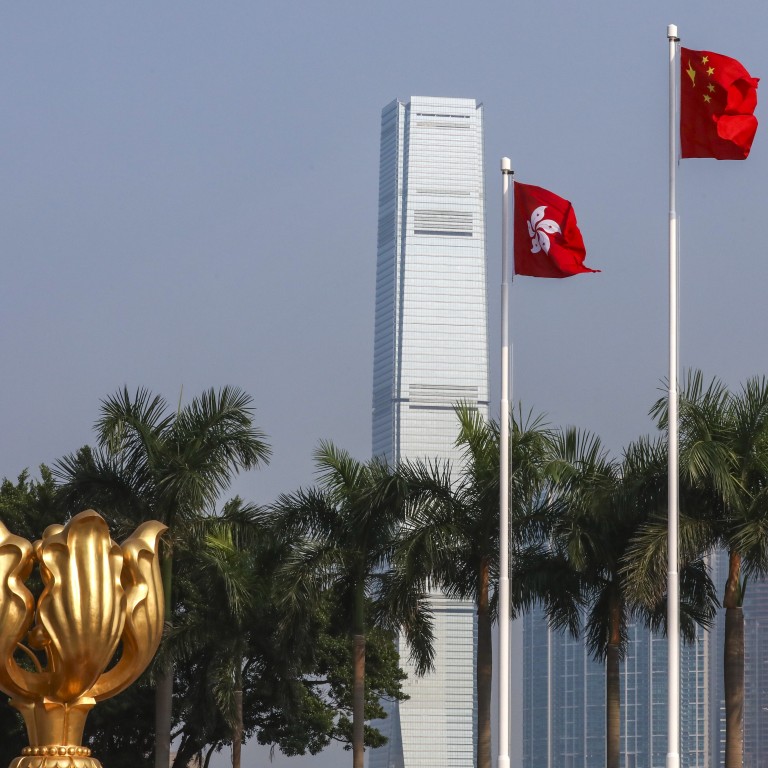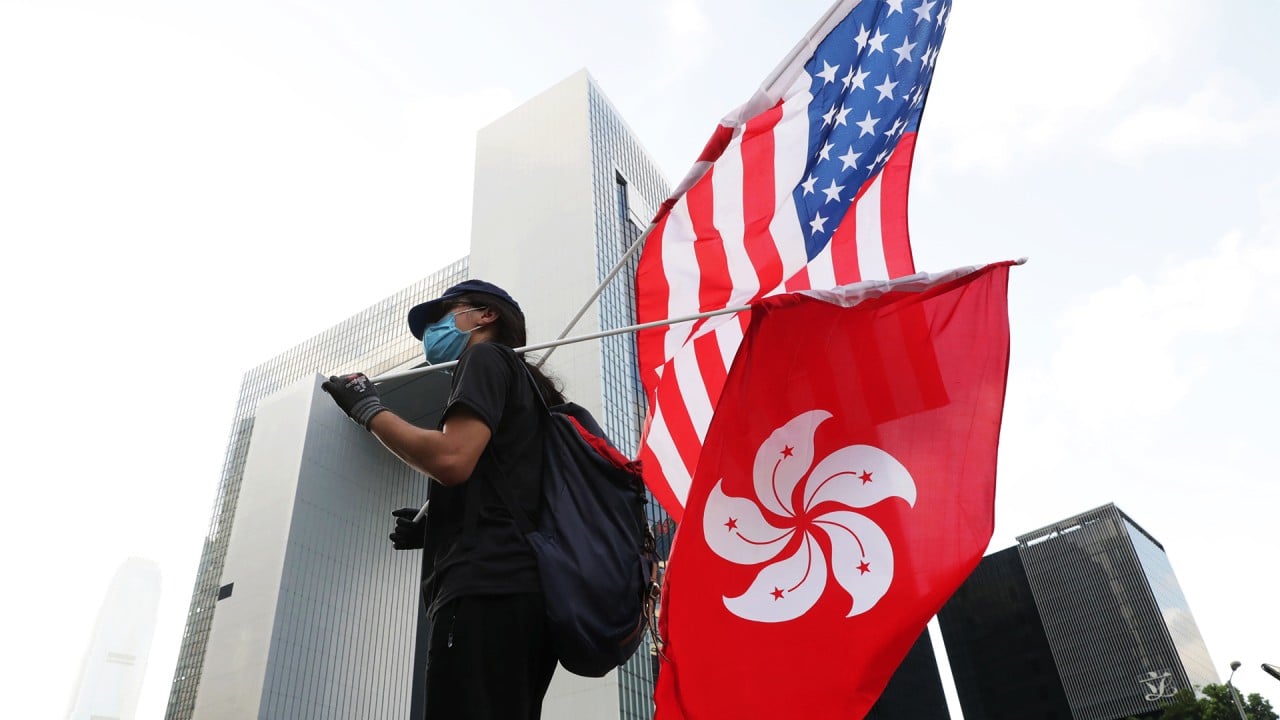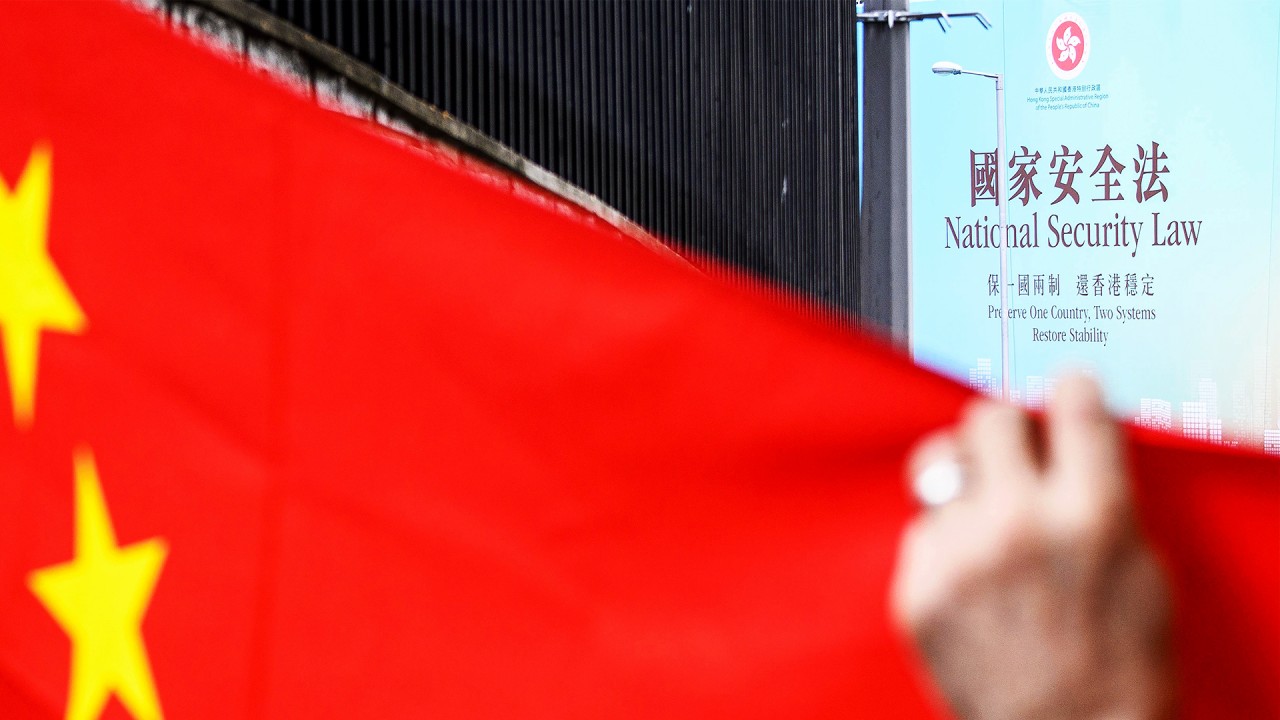
China to put visa restrictions on US individuals over Hong Kong
- Any American efforts to undermine introduction of national security law for the city will not succeed, foreign ministry says
- Beijing silent on who and how many people will be targeted
China has announced visa restrictions on US individuals who “behave egregiously” in relation to Hong Kong affairs.
The move is in retaliation for Washington’s decision last week to restrict visas for Chinese officials who undermine Hong Kong’s semi-autonomous status.
“In view of the erroneous actions of the US, China has decided to impose visa restrictions on US individuals who behave egregiously on Hong Kong-related issues,” Zhao said, without saying who or how many would be targeted.

00:59
EU leaders warn Xi of ‘negative consequences’ if China imposes national security law in Hong Kong
On Friday, US Secretary of State Mike Pompeo announced US visa restrictions on serving and former Communist Party officials “believed to be responsible for, or complicit in” undermining Hong Kong’s autonomy, rights, and freedoms.
Pompeo, too, did not elaborate and China responded immediately by threatening retaliation.
EU urged to ‘speak with single voice’ against China’s national security law
The national security law is expected to be passed by the Standing Committee of China’s legislature, the National People’s Congress, which started a three-day meeting on Sunday.
Last week, European Union leaders warned Chinese President Xi Jinping of “very negative consequences” over its plan to introduce the law in Hong Kong.
“The national security law risks seriously undermining the ‘one country, two systems’ principle,” European Commission President Ursula von der Leyen said. “We also conveyed that China risks very negative consequences if it goes forward with imposing this law.”
The US’ Hong Kong Autonomy Act comes on the heels of the Hong Kong Human Rights and Democracy Act and seeks to establish mandatory sanctions for individuals or companies that have “materially contributed” to China’s failure to comply with the Sino-British Joint Declaration on the Basic Law, the city’s mini-constitution.

01:08
US Senate passes bill that could punish China for Hong Kong national security law
It would also impose sanctions on foreign financial institutions that have “knowingly conducted significant transactions” with those individuals and entities.
The US House of Representatives must pass the bill before it can become law.
In a statement Monday, the Senate bill’s author, Pennsylvania Republican Pat Toomey, said Beijing’s move to target US individuals with visa restrictions was “evidence that the Hong Kong Autonomy Act would have the intended effect of punishing abuses and they are afraid of the consequences”.
When pressed on who would be subject to the new visa restrictions, Zhao gave no indication on Monday as to whether the move would affect lawmakers, administration officials, or both, but said that the individuals concerned would be “well aware [of who they are]”.
China’s National Security Commission met in secret amid virus pandemic
A spokesman for Toomey said he was not aware of any official notification that the senator was among the targets of Beijing’s new visa restrictions.
Beijing’s decision not to release the names of anyone targeted was a sign that it intended to follow Washington’s lead on both the introduction and possible scaling back of the punitive measures, said Yun Sun, director of the China program at the Washington-based Stimson Centre.
The US administration’s ambiguity was “trying to signal room for leverage and flexibility,” said Sun. “If Beijing complies with US demands, the US list will be lenient.” Beijing’s reaction, she continued, would be “proportional in terms of the scope and intensity”.

01:36
China to restrict visas for Americans 'interfering’ in Hong Kong
Observers in China said the new measures by Beijing would further strain the relationship between the two countries but have little immediate and direct impact on Chinese officials.
“Chinese officials covered by the visa restrictions don’t plan to go to the US and vice versa,” said Shen Dingli, a professor of US studies at Fudan University.
But tension would grow in areas such as trade, finance, technology and communications, he said, predicting that “China-US relationships will continue to go downhill.”
Jia Qingguo, a professor of international studies at Peking University, said the restrictions would eventually affect individuals.
“No matter whether you are an overseas student or a tourist, or businessperson, if the atmosphere is not good, you will gradually be affected,” Jia said.
Additional reporting by Owen Churchill and Jacob Fromer


